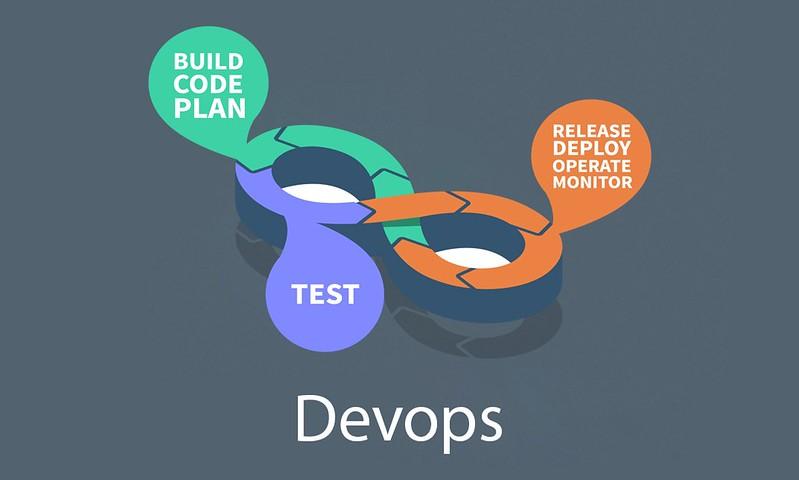Do you want to pursue a career in DevOps management? As a seasoned DevOps manager, my advice to you before starting this process is to learn the advantages and disadvantages of being a DevOps manager to ensure you suit the job.
The benefits and difficulties below will help you understand this job and make the right choice. Let’s dive into it!
Overview of DevOps Managers
DevOps managers are the bridge between developers and operations teams. We ensure these teams work together smoothly. Here’s an overview of what I and other managers do:
- Improving processes: We use tools to automate tasks, like testing or deploying code, so the working process happens quickly and without mistakes.
- Watching performance: We keep an eye on how well the software works. If there are problems, we figure out why and fix them quickly.
- Security tasks: We also focus on keeping software safe from cyber threats. We add security checks into the process to catch issues before they become big problems.
- Changing culture: We encourage teams to work together, learn from their mistakes, and create a culture of improvement.
- Handling risks: We plan how to deal with possible problems to avoid issues when making changes.

What benefits and difficulties will you have when becoming a DevOps manager? Let’s explore together in this section!
This job’s pros make me very satisfied when I contribute my best to it. And I believe these benefits will convince you to pursue this career!
1. In-Demand Skills
In this increasingly tech world, becoming a DevOps manager with sought-after skills offers many benefits in job opportunities, salaries, and advancement, as companies nowadays want these skills to make their software better and faster.
DevOps managers are like captains of the team. We help team members with technical ideas and ensure everyone works well together. We even organize team-building activities.
As you can see, this role is super important. We speed up the making-software process and help the company stay competitive. We create a culture of always getting better.

2. Lucrative Career With a High Salary
DevOps management is one of the fields that brings high income. In September 2023, most DevOps managers earned between $155,000 and $247,000 per year. On average, it’s about $194,000 a year.
These numbers show that you can make good money as a DevOps manager because you help companies work better with technology and deliver software faster.
3. Rapidly Evolving Field For Career Growth
Being a DevOps manager is a choice for career growth because this field is changing. In technology, things never stay the same for long, and DevOps is at the front of all these changes.
As a DevOps manager, I can learn new things all the time and keep up with the latest trends. As I’ve mentioned, there’s a high demand for people who know DevOps, which means lots of opportunities to move up in your career.
Whether getting good with new tools, exploring modern techs like containers and serverless computing, or even trying out other tech jobs like cloud architect or cybersecurity expert, I love that DevOps expands my career options.
4. Dynamic Working Environment
I guess no one told you that being a DevOps manager means enjoying a lively work setting. Every day, there are new problems to solve and chances to learn and grow. Technology moves fast, and this makes the job really interesting.
What I love about this working environment is I get to use the latest tech tools, work with different teams, and tackle all kinds of challenges.
Whether finding better ways to do things or adapting to what’s new in the tech world, there are always exciting things happening.

The above factors show that this role brings many benefits to those who pursue it. Yet, I must admit that it has some cons that you should consider.
5. High Level Of Responsibility
As a DevOps manager, I’m responsible for ensuring everything runs smoothly in the software development and deployment process. If something goes wrong, it’s often my responsibility.
So, I usually find the job quite stressful because even small mistakes can lead to big problems like system failures or project delays. The pressure to keep things working perfectly is sometimes overwhelming.

6. Long Hours
The job of a DevOps manager doesn’t fit neatly into a 9-to-5 schedule. I often work long hours, especially when there are vital software releases or urgent issues to address.
Sometimes, I have to be available during weekends and holidays. This irregular work schedule is tough to balance with personal life and relaxation. It can lead to fatigue and strain relationships when you’re constantly on call.
7. Communication Challenges
DevOps relies heavily on good communication, but it’s not always easy. I must bridge the gap between different teams (developers and operations) to ensure they work well together. Sometimes, they have different priorities or don’t understand each other’s needs.
Also, explaining technical ideas to people who aren’t tech-savvy is tricky. This communication gap often leads to misunderstandings, project delays, and workplace conflicts.
Should You Get a DevOps Management Job?
Deciding whether to go for a DevOps management job depends on your interests and skills. For me, it is an ideal career as it has good pay, an exciting work environment, and a chance to improve software development.
However, you’d have a lot of pressure, sometimes work long hours, and face difficulties explaining technical ideas to non-tech people.
So, this is a great career choice if you love solving problems, handling tech, and leading people. But remember, it’s fast-paced and changing, so you need to stay updated.
Wrap Up
When considering the pros and cons of being a DevOps manager, it’s clear that there are some really appealing aspects, such as the potential for a good salary and the chance to make technology better.
But I also have to remember the drawbacks. The high responsibilities, long hours, and difficulty explaining tech stuff to non-tech people are challenging.
What do you think about these pros and cons? Comment down below!
